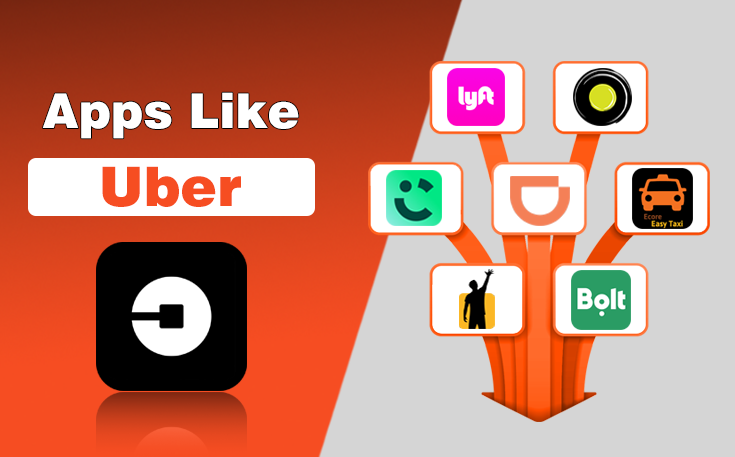Mobile engagement is undergoing rapid revolution, driven by advancements in the tech world. Companies and brands are blending innovation with the user’s needs and requirements. Some of the most advanced technologies include AI, AR, and many more.
These advancements help in enhancing the user experience in different ways. This includes increasing customer satisfaction during the purchase process with AR technology, among other benefits. However, many users are concerned about the future of mobile engagements due to numerous conspiracies circulating on the internet.
In this blog post, I will discuss the future of mobile engagement with AI, AR, and other transformative technologies.
AI-Powered Personalization in Mobile Engagement
AI powers personalized mobile interactions. There are a lot of apps that suggest content, matching the user’s preferences instantly. This tailored experience boosts engagement by feeling intuitive and the real-time adjustments keep everyone hooked.
Using this customization can enhance customer loyalty. The personalized push notifications drive higher click-through rates, and AI algorithms predict user behavior accurately. I have personally used tools to cover up the audience’s needs, which helps to improve retention.

You can also opt for tested predictive models that help in spotting trends. This precision optimizes campaigns, and the proactive approach keeps users engaged longer.
AI chatbots handle queries seamlessly. You can interact with them for instant support. This convenience feels just like a human service. The 24/7 availability enhances user satisfaction.
Many people rely on virtual assistants for task automation. This saves time and the conversational flow strengthens mobile engagement.
AR and Immersive Experiences in Mobile Engagement
AR, abbreviated as Augmented Reality. This technology overlays virtual products over physical objects and creates very immersive mobile experiences. I have tried AR filters, and they helped me boost my app interactivity. This helps in increasing engagement, which captivates users with visuals, and the gamified elements increase retention.
You can also explore AR shopping by visualizing products. This innovation drives purchases. The immersive design elevates brand connection with the users and increases mobile engagement.
AR uses location for targeted interactions. Various geo-targeted ads help boost foot traffic to the business platforms. I have also used AR maps for navigation, and it was a very intuitive experience. This utility improves user experience, and the contextual engagement strengthens loyalty.
AR benefits mobile engagement immensely because it provides a sense of novelty and entertainment. Applications can guide users through immersive tutorials, create gamified shopping experiences, or even bring storytelling to life in fresh ways.
Beyond AI and AR: Emerging Technologies Driving Mobile Engagement
Other than AI and AR, there are a lot of technologies enhancing mobile engagement. This includes a more powerful internet connection, IoT technology, and many other advancements.
- 5G enhances mobile performance because it features faster load times, improving the app’s use. This speed supports rich content, and the low latency enables real-time gaming. I have also explored 5G streaming for seamless video content. It boosts engagement, and the enhanced bandwidth supports future innovations.
- IoT connects devices for interaction. You can use smart wearables that support syncing with apps. This integration personalises experiences, and the connected ecosystem drives usage. There are a lot of people who use IoT devices for instant alarms and security systems. This convenience enhances daily life experiences, and the smart features deepen mobile engagement.
- Multiple tools, such as the voice tools, also expand engagement options. Voice assistants such as Alexa are very popular for hands-free control. This accessibility suits multitasking, and the natural language improves interaction. You can also use voice search options for quick queries. It saves time, and the voice integration broadens reach.
Data Ethics and Privacy in Mobile Engagement
Ethical data builds trust and credibility. I have always valued clear policies on data use. This transparency boosts confidence, and informed consent respects user rights.
This advanced technology also features multiple opt-in options for data control. It enhances loyalty, and the ethical approach strengthens engagement. It has a very robust security system that helps to protect privacy. If you are concerned about privacy, then you can also use encrypted apps to safeguard data. This encryption prevents breaches.
I personally mostly rely on two-factor authentication for safety purposes. It reduces risks, and the secure environment supports engagement. Adhering to laws ensures the legality of the tech and this helps to stay compliant. Embracing these policies helps to avoid penalties, and the regulatory alignment protects users.
The Business Value of Future-Ready Mobile Engagement
Mobile engagement has an extreme level of business value for future technology. Innovative engagement retains users. If you use personalized features, you’ll definitely observe higher customer engagement and loyalty. And this loyalty helps in brand building and long-term business success.
Always keep in mind that Immersive experiences build trust. I have felt connected with AR campaigns. And because it increases customer loyalty, it also strengthens brand equity. The emotional bond increases advocacy. According to most businesses, a trusted image drives sales, while advanced tools increase profits.
Final Words
The future of mobile engagement is very bright because it is driven by innovative technologies like AI, AR, and 5G internet. AI-powered personalization enhances user experiences, while AR creates immersive interactions that captivate and retain users.
Emerging technologies, including IoT and voice assistants, expand engagement options and convenience. However, ethical data practices and strong privacy measures are essential for building trust and loyalty among users.
Brands and companies are embracing these advancements because they help to retain significant business value. And also ensuring a more connected and engaging mobile experience. The blend of technology and user-centric design will define the future landscape of mobile engagement.
Need custom app with amazing features?
Get a Quote




